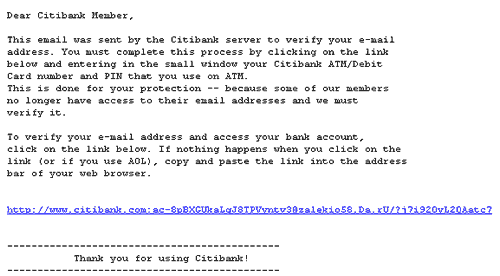
For many, the Monday following Black Friday (often called Cyber Monday) is the biggest shopping day of the year. But with so many people going online to spend money, online security giant McAfee is urging caution against what they call the
12 Scams of Christmas.
Information provided by McAfee Labs and ConsumerAffairs.com: 1. Charity Phishing Scams -- Be Careful Who You Give To Hackers take advantage of citizens' generosity by sending e-mails that appear to be from legitimate charitable organizations. They look real but aren't and are actually fake Websites designed to get you to give your personal information away to the wrong source.
2. Fake Invoices from Delivery Services to Steal Your Money Cybercriminals often send fake invoices and delivery notifications appearing to be from Federal Express, UPS or the U.S. Customs Service. They e-mail consumers asking for credit card details to credit back the account, or require users to open an online invoice or customs form to receive the package. Once completed, the person's information is stolen or malware is automatically installed on their computer.
3. Social Networking -- Cybercriminal "Wants to be Your Friend" Cybercriminals take advantage of this social time of the year by sending authentic-looking "New Friend Request" e-mails from social networking sites. The fakes can often be spotted by looking at the e-mail address. If it is from
"Facebookmail.com" instead of
"Facebook.com," it may not be the real deal. The best way to avoid this scheme is to just open the Website in your browser.
4. The Dangers of Holiday E-Cards Cyber thieves cash in on consumers who send holiday e-cards in an effort to be environmentally conscious. Last holiday season, McAfee Labs discovered a worm masked as Hallmark e-cards and McDonald's and Coca-Cola holiday promotions. Holiday-themed PowerPoint e-mail attachments are also popular among cybercriminals. Be careful what you click on.
5. "Luxury" Holiday Jewelry Comes at a High Price McAfee Labs recently uncovered a new holiday campaign that leads shoppers to malware-ridden sites offering "discounted" luxury gifts from Cartier, Gucci, and Tag Heuer. Cybercriminals even use fraudulent logos of the Better Business Bureau to trick shoppers into buying products they never receive.
6. Practice Safe Holiday Shopping -- Online Identity Theft on the Rise Forrester Research Inc. predicts online holiday sales will increase this year, as more bargain hunters turn to the Web for deals. While users shop and surf on open hotspots, hackers can spy on their activity in an attempt to steal their personal information. McAfee tells users
never to shop online from a public computer or on an open Wi-Fi network.
7. Christmas Carol Lyrics Can Be Dangerous -- Risky Holiday Searches During the holidays, hackers create fraudulent holiday-related Web sites for people searching for a holiday ringtone or wallpaper, Christmas carol lyrics or a festive screensaver. Downloading holiday-themed files may infect one's computer with spyware, adware or other malware. McAfee found one Christmas carol download site that led searchers to adware, spyware and other potentially unwanted programs.
8. Out of Work -- Job-Related E-mail Scams The U.S. unemployment rate recently spiked to 10.2 per cent, the highest level since 1983. Scammers are preying on desperate job-seekers in the poor economy, with the promise of high-paying jobs and work-from-home moneymaking opportunities. Once those interested submit their information and pay their "set-up" fee, hackers steal their money instead of following through on the promised employment opportunity.
9. Outbidding for Crime -- Auction Site Fraud Scammers often lurk on auction sites during the holiday season. Buyers should beware of auction deals that appear too good to be true, because often times these purchases never reach their new owner.
10. Password Stealing Scams Password theft is rampant during the holidays, as thieves use low-cost tools to uncover a person's password and send out malware to record keystrokes, called keylogging. Once criminals have access to one or more passwords, they gain vast access to consumers' bank and credit card details and clean out accounts within minutes. They also commonly send out spam from a user's account to their contacts.
11. E-Mail Banking Scams Cybercriminals trick consumers into divulging their bank details by sending official-looking e-mails from financial institutions. They ask users to confirm their account information, including a user name and password, with a warning that their account will become invalid if they do not comply. Then they often sell this information through an underground online black market. McAfee Labs believes cybercriminals are more actively scamming consumers with this tactic during the holidays since people are monitoring their purchases closely.
12. Your Files for Ransom -- Ransomware Scams Hackers gain control of people's computers through several of these holiday scams. They then act as virtual kidnappers to hijack computer files and encrypt them, making them unreadable and inaccessible. The scammer holds the user's files ransom by demanding payment in exchange for getting them back.
(Kait8)